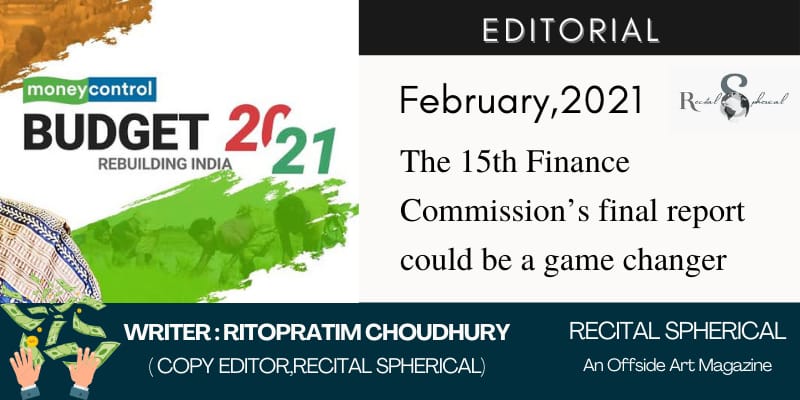The Fifteenth Finance Commission of India (XV FC) could fundamentally transform the financial governance of India’s municipalities, if its interim report is anything to go by. Finance Commissions generally submit their reports for a five-year duration. The XV FC, however, was given an extension of a year due to uncertainties in key macro areas (new monetary policy framework, GST, bankruptcy code, demonetisation, etc.). Its interim report for FY 2020-21 was, therefore, tabled in Parliament along with Budget 2020-21 and their final report for FY 2021-22 to FY 2025-26 is expected to be tabled along with the forthcoming Budget 2021-22.
Building on the track record of previous finance commissions, the XV FC Commission has significantly raised the bar on financial governance of India’s municipalities in the interim report in at least four specific ways. If the final report furthers or even maintains these four specific agendas, it could be a watershed moment in the otherwise stolid journey of financial governance reforms of India’s municipalities.
First, the XV FC in its interim report has tried to significantly increase the overall outlay for municipalities. It has set aside Rs 29,000 crore for FY 2020-21 and indicated the intent to raise the share of municipalities in the total grants’ of local bodies (including panchayats) gradually over the medium term, from the existing 30 per cent to 40 per cent. This could result in the outlay over five years being in the range of Rs 1,50,000-Rs 2,00,000 crore compared to Rs 87,000 crore during the XIV FC period.
Second, two very important entry conditions have been set for any municipality (there are approximately 4,500 of them) in India to receive FC grants: Publication of audited annual accounts and notification of floor rates for property tax. These two entry conditions lay strong foundations for financial accountability of municipalities and own revenue enhancement respectively. There are other reforms, too, that are underway on these fronts. The Atmanirbhar Bharat. Rs 50,000 crore of additional borrowing limits for states to reforms in property taxes and user charges for water and sanitation. There is also a thrust on municipal bonds and municipal finance reform conditions under AMRUT. The last year-and-a-half, therefore, may have witnessed the strongest push in recent times for transformed financial governance in our municipalities.
Third, the XV FC has adopted a nuanced approach of distinguishing between million-plus urban agglomerations, and other cities. This is well-founded, based on the pattern of urbanisation in India, where 53 million-plus urban agglomerations comprising 250-plus municipalities account for approximately 44 per cent of the total urban population. The remaining 4,250-plus municipalities comprise 56 per cent of the total urban population, of which approximately 350-plus one lakh-plus municipalities comprise 23 per cent of the total urban population, leaving a “long tail” of approximately 3,900 municipalities with 33 per cent of the total urban population. The XV FC has now provided for 100 per cent outcome-based funding of approximately Rs 9,000 crore to 50 million-plus urban agglomerations (excluding Union Territories) with specific emphasis on air quality, water supply and sanitation and basic grants to the rest of the cities, with 50 per cent of the end-use tied to water supply and sanitation. For the first time, there is also an acknowledgement of the metropolitan area as a unified theatre of action to solve complex challenges of air quality, water and sanitation, with implicit emphasis on inter-agency coordination.
Last, with an emphatic recommendation for a common digital platform for municipal accounts, a consolidated view of municipal finances and sectoral outlays at the state level, and digital footprint of individual transactions at source, the FC has delightfully broken new ground and demonstrated farsightedness.
These four aspects of the interim report reflect an ambition to bring to logical culmination municipal finance reforms which have progressed at a glacial pace over the past two decades. Needless to say, the foundation for some of these were laid by previous finance commissions, particularly the thirteenth and fourteenth.Even as we hope that the final report of the XV FC retains these four aspects, we cannot but underline that the ultimate responsibility for municipal finance reforms remains with state governments.
Ritopratim Choudhury




